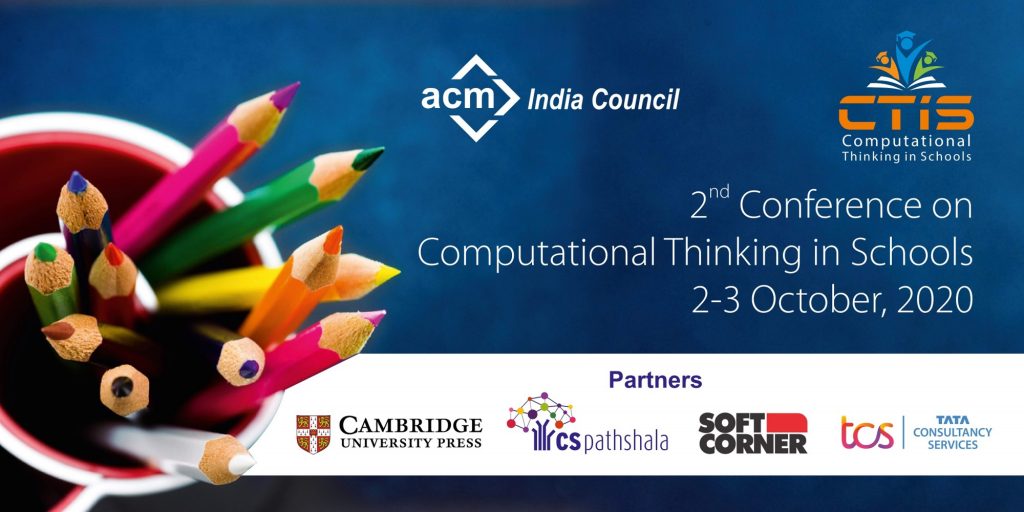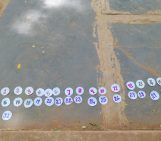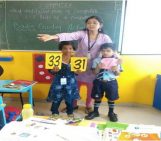
Priyanka KS, APSEF and Sonia Garcha, CSpathshala
Covid19 pandemic has thrown unprecedented challenges with continuing education as one of the major areas affected with complete closure of schools, limited or no access to digital technology and of course learning new skills to cope with the challenges while keeping teaching and learning alive. Urban and rural teachers who have been intimidated with using digital technology are today trying to learn how to teach online and explore how to handle the online and digital media and use tools effectively. Teachers are using the disruption of the pandemic to come up with solutions that are suitable to their local situations both urban and rural!
Strengthening Teachers Communities
At CSpathshala, one of our goals is to support and strengthen the teacher communities, we explored ways to continue this effort and address some of these challenges in the new Normal and found that these could be turned into opportunities for them to continue to learn, share best practices, and network. The team brainstormed on approaches that could be used for making the task of teaching Computational Thinking easier. Webinars were easier to attend with access to internet. We could get several national and international resources to share their views on computational thinking and share innovative methods. Since June 2020, CSpathshala organised teacher-oriented webinars and enabled over 1,500 urban and rural teachers to learn from expert resources on various areas of Computational Thinking:
- Computer Science Unplugged and Computational Thinking – what’s the big picture?, Tim Bell, University of Canterbury, New Zealand
- Computational thinking in the mathematics classroom, Jonaki Ghosh, Lady Sri Ram College, University of Delhi,
- Repetition and Recursion, Dan Garcia, University of California, Berkeley
- Computational Thinking, Jeannette Wing, Columbia University, NY
- Bebras: Computer Science Challenge as a Valuable Learning Experience, Valentina Dagiene, Informatics Professor at Vilnius University, Lithuania
The second edition of the Computational Thinking in Schools conference, CTiS2020 was virtual. The response was overwhelming with 236 abstracts received from school teachers across India and participation of 1,000+ urban and rural teachers. The conference featured presentations of selected abstracts with sessions on implementation of computational thinking, fun activities and innovative examples used by teachers in classrooms.
Knowledge assimilation through learning circles
A challenge for our rural teachers from Andhra Pradesh Social Welfare and Tribal Welfare schools was the assimilation of all the online content and we adopted learning circles as a tool for knowledge assimilation. Learning circles enabled teacher communities to learn from each other’s experiences, interact in their local language (Telugu), reflect on teaching practices and seek ways to enhance their effectiveness in teaching Computational Thinking in classrooms!
CSpathshala and APSWREIS(Andhra Pradesh Social Welfare Residential Educational Institutions Society) had organised a week long learning circle sessions for CTiS2020 sessions’ knowledge assimilation. The first step was the identification of the sessions for the learning circles i.e. Keynote sessions and teacher presentations and resource persons for each session. Geeta Ghormade, Meghe Group of Schools, Priyanka KS, APSEF, Vipul Shah and Sonia Garcha from CSpathshala were the resource persons for these sessions. Webinar sessions included viewing of the recording of the selected sessions together by 400+ teachers (CT trainers) across AP Social Welfare, Tribal Welfare and Ashram schools. Each webinar had a dedicated resource person for a context setting in the beginning, fostering indepth learning of the theme and a question and answer session at the end.
What is a learning circle?
A forum where a group of 25 – 27 participants come together to discuss the theme of the day and exchange ideas, clarify doubts and look at change in the approach and what could have been done better more like agree/disagree as well.
Learning Circles with AP Social Welfare trainers
Learning circles for 190 AP Social Welfare CT trainers were conducted. The webinars were followed by breaking up into smaller groups for learning circles of one hour duration with learning circle facilitators taking a lead to facilitate discussions and experience sharing based on the recorded session viewed earlier.
The second step was to identify two learning circle facilitators for each group and we had a special orientation session for their roles and the structure of the learning circle sessions. Each learning circle group had teachers (CT trainers) from 2 districts. A couple of hours preparatory time is given to participants with assignments to prepare points/activities for the learning circle. Each session of one hour duration began with an ice breaker, recap of the webinar session, guided discussions and questions and answers sessions. E.g.
- What is Computational thinking according to you and give some real-life examples
- Why is computational thinking important?
- What new aspect did you learn today in the presentation on CT ?
Each participant also got an opportunity to share their classroom experiences in this moderated session. An important role of the facilitator was to make sure each participant was contributing to the discussions, set the tone of the session and conclude with learnings of the day (based on the theme only).
Feedback
A feedback was conducted at the end of the week and all the teachers (CT trainers) shared that the CTiS2020 assimilation sessions were very useful. The learning circles provided a space for all the participants to:
- Understand CT implementation across various schools across the country
- Revisit how the teachers had conducted various activities across the thematic areas, ask questions and discuss how they could take these learnings back to their classroom.
- Discuss the examples shared during the teachers presentations, demonstrate activities and share their own experiences of teaching these topics and also the challenges they faced and how they localised these examples for their students.
Learnings
The Learning circles are an excellent tool for teacher development as teachers are the learners who get an opportunity to revisit the topics and discuss the takeaways from each session. Each learning circle as mentioned earlier had only 20 – 30 members which made the space a lot more interactive. In smaller groups all participants were encouraged to participate, ask doubts and share experiences based on the shared agenda for the day. As these groups had teachers (CT trainers) from different districts in AP, they brought together a diversity in experience.
The learning circles provided a platform for these learners to demonstrate the activities which helped enrich their learning experience and learning from someone from the same team ensured effective co-learning. Another positive outcome was overcoming the language barrier as the CTiS2020 sessions were all in English, all the discussions were conducted in bi-lingual : English and Telugu by the learning circle facilitators. The learning circle is a structured space provided for exchange of ideas and teachers’ presentations motivated participants to share their experiences of implementation in the classroom and student experiences. If technology like zoom break out rooms are used, it was easy for an external resource / moderators to hop among the groups and be a part of a few discussions.
During the lockdown time, the CSpathsala webinars, CTiS2020 sessions’ knowledge assimilation and learning circles provided an excellent platform to bring together various stakeholders and upgraded the knowledge of the trainers!


